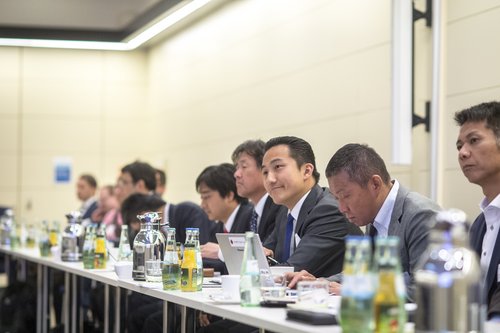Labelling is recognized as a useful regulatory tool to bridge product-related information gaps in business-to-consumer (B2C) relations. When purchasing home appliances, uninformed consumers tend to be guided by the green-to-red-scale to learn about energy efficiency performance. This is where labels seem to make sense: they compensate for market failure.
Product Labelling - the Industrial Customer's Perspective

Labelling is recognized as a useful regulatory tool to bridge product-related information gaps in business-to-consumer (B2C) relations. When purchasing home appliances, uninformed consumers tend to be guided by the green-to-red-scale to learn about energy efficiency performance. This is where labels seem to make sense: they compensate for market failure.
In a business-to-business (B2B) context, however, the buyer is well informed of his purchases and related performance. Labelling initiatives often bring all types of products into one scope. This creates regulatory uncertainty for mechanical engineering companies who mainly trade with other businesses. As the European Parliament and Council prepare themselves to deliberate a recently tabled policy proposal for a label and certification framework on cyber security, a new evidence-based study by the Cologne Institute for Economic Research sheds light on why the industrial customer should be treated differently to the final consumer in upcoming legislation.
We would be delighted to have you join the presentation of the new study and take part in the Breakfast debate on "Product Labelling - the Industrial Customer's Perspective" with Martina Werner, MEP, member of the ITRE Committee
With introductory remarks by Dr. Manfred Wittenstein, WITTENSTEIN SE and IMPULS-Foundation, presentation by Dr. Karl Lichtblau, Cologne Institute for Economic Research, and concluding remarks by Naemi Denz, German Engineering Association VDMA.
Product Labelling - the Industrial Customer's Perspective
Programm
More on the topic

Symposium: Digital Transformation and Globalization in Germany and Japan
This symposium Symposium of Japanese-German Center Berlin, Fujitsu Research Institute and Cologne Institute for Economic Research has brought together experts and affected companies from Germany and Japan to discuss their views on and strategies for digital ...
IW
CO2 Compendium on CO2 regulation for motor vehicles in Europe
The transportation sector faces special challenges in the process of decarbonisation, since the need for mobility – both for people and goods – is rapidly increasing around the world, especially in the emerging economies. Because of road traffic’s key position ...
IW